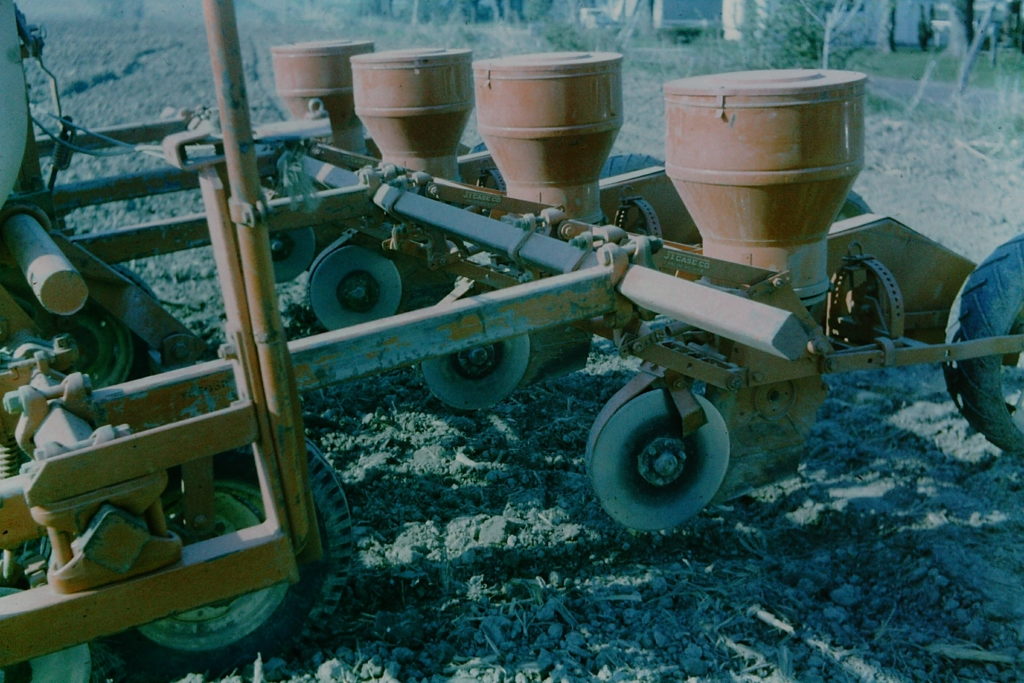A Word From Jim
Wise words from Jim Hess, Elkhart County SWCD District Manager
This is a difficult post to write with so many factors affecting the farm in play. It is even more difficult with your farm business on the line. We have been through both low and high milk prices and high grain prices times before. Farms survived then and will now but not without some change. An old farmer saying is, “Doing the same thing over and over again and expecting different results is the definition of insanity.”
Not good news. The cool (cold in some areas) and wet is everywhere. The concern is that the weather is due to the sunspot output going into a major, naturally occurring, decline. When this happens, the magnetic sphere—a magnetic envelope extending from the sun out, covering the earth as it were—shrinks. This allows intergalactic rays to bombard the earth. They produce clouds. Clouds do two things; first, they reflect heat from the sun away from the earth, cooling it and secondly, clouds produce rainfall. We have had both. Neither have anything to do with political “climate change”. This has happened before during the “little ice ages” in Europe during the late middle ages (1500-1800,) and the dark ages (300-500). There was widespread crop failure and subsequent famines. Will it be that bad again? I do not know but the real weather scientists are starting to say it is following the same weather pattern in the sun spot minimum.
What can you do? First, pray. God is still in charge, always listens, and replies but not always as we expect. Second, adjust your cropping system to counter the weather patterns. An old saying is. “A drought will scare a farmer to death, a flood will starve him”.
On the upside, (cropping – the other good news!) if you are using those cover crops as forage they should have very high digestibility due to the cool and cold nights that we have been experiencing. Thus, if you are weather delayed in making hay do not give up the crop, as we do not know what the rest of the summer will be like. Even if the heads are starting to emerge, harvest it as a regular crop. Then, if the summer turns out perfect, you can move it to dry cows and heifers. If the summer continues like this spring, you will have forage for your dairy herd. The other advantage where farms had been able to get cover crops planted last fall is that there is 60% less moisture under a cover crop than under bare soil. This allows no-till/strip-till corn planting much sooner. A wet spring years ago, a farmer reported the only ground he could get on and harvest was the cover crop fields. He then spread manure on the stubble and planted corn. Then he waited for the rest of the farm to dry out.
This is turning out to be one of those years where it may be most beneficial to harvest haylage first and then plant corn after. Haylage loses quality by the day. Corn loses yield over several weeks. Corn planted later will naturally shorten its maturity to a degree and can still produce 95% of the normal yield. The other reason to wait on the corn is that the planter and its tractor cause some of the worst yield robbing compaction. Those who win yield contests nearly all wait until soil conditions are right. Planting to soon smears and compacts the soil so the corn roots cannot penetrate. The soil, when it dries, can pull open the slot allowing weather and pests to take out the seedling. The other consequence this year is imbibing injury. A rapid temperature drop chills the seed as it absorbs water (imbibing). This can kill the seed.
Consider no-till. You only need the top 4 inches friable to plant not 7- 8 inches as with tillage. You can get more corn no-till planted in less time by waiting for the right conditions.
Now by this point you might be wondering, wow Jim what happened to you (laugh aloud). I do not want to scare or suggest disaster but as stewards of the land, we need to watch and look at our surroundings. You can learn a lot from patterns, animal’s hair coats, and tree rings. I am a firm believer in technology, but sometimes history, notes, old timers, and just keeping it simple helps. Always remember if you work with nature, nature will work with you.
